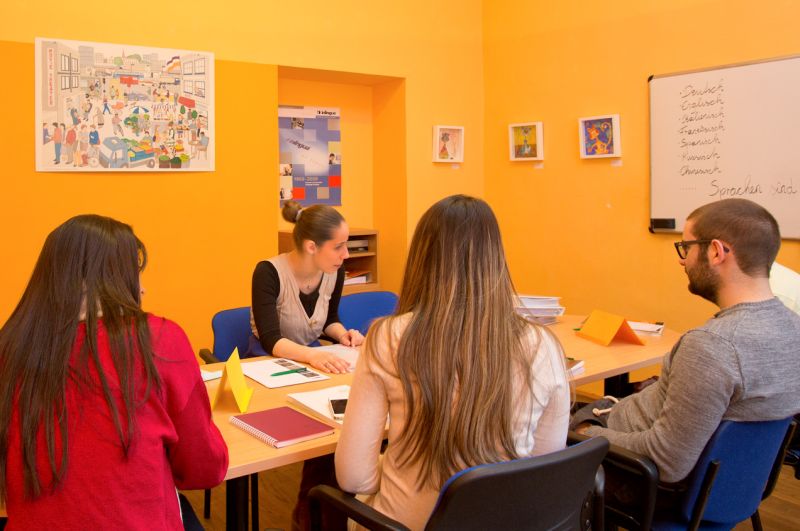
Learning new vocabulary can be challenging, but there are numerous methods you can use to effectively expand your vocabulary. In this article, we will discuss different learning methods that are suitable for different learning types.
We will also present proven strategies used by polyglots, as well as creative and fun approaches that make vocabulary learning exciting.
Whether you’re already learning German or just starting out, you’ll find helpful tips to accelerate your progress.
Tips for visual learners:
- Use flashcards: write the German word on one side and the translation on the other. By repeating the cards, you can train your memory.
- Create word pictures: Connect new vocabulary words with pictures or symbols to create visual associations.
Tips for auditory learners:
- Listen to music or podcasts in German: songs and podcasts provide a fun way to expand vocabulary and improve listening comprehension.
- Use language-learning apps: Many apps offer audio exercises and pronunciation examples to help you aurally anchor German vocabulary.
Tips for the communicative learner:
- Practice in dialogues: find a learning partner or use language exchange platforms to have conversations in German and use vocabulary in authentic situations.
- Take language courses: a structured language course gives you the opportunity to interact in a group and continuously practice vocabulary.
Proven polyglot methods:
- The contextual learning method: learn new vocabulary in sentences or texts to better understand the context and anchor the words in their natural contexts.
- Combining visual and auditory elements: Use multimedia resources such as videos or audiobooks to combine visual and auditory stimuli and make vocabulary learning more effective.
Creative and entertaining approaches:
- Learn with songs: search for German songs with lyrics and sing along. By immersing yourself in the melody and rhythm, you can learn the vocabulary in a fun way
- Process the vocabulary into stories: Write short stories or poems with the new vocabulary. So you create an emotional connection and promote creative thinking.
.
Conclusion:
Learning new German vocabulary requires patience and commitment. If you choose the methods that best suit your individual learning style, you can increase your efficiency. Experiment with different approaches to find out which ones are most effective for you.
Remember that learning vocabulary can also be fun. Use creative and entertaining methods to motivate yourself. With perseverance and the right strategies, you will expand your vocabulary and improve your German skills in no time. Good luck with your learning!







